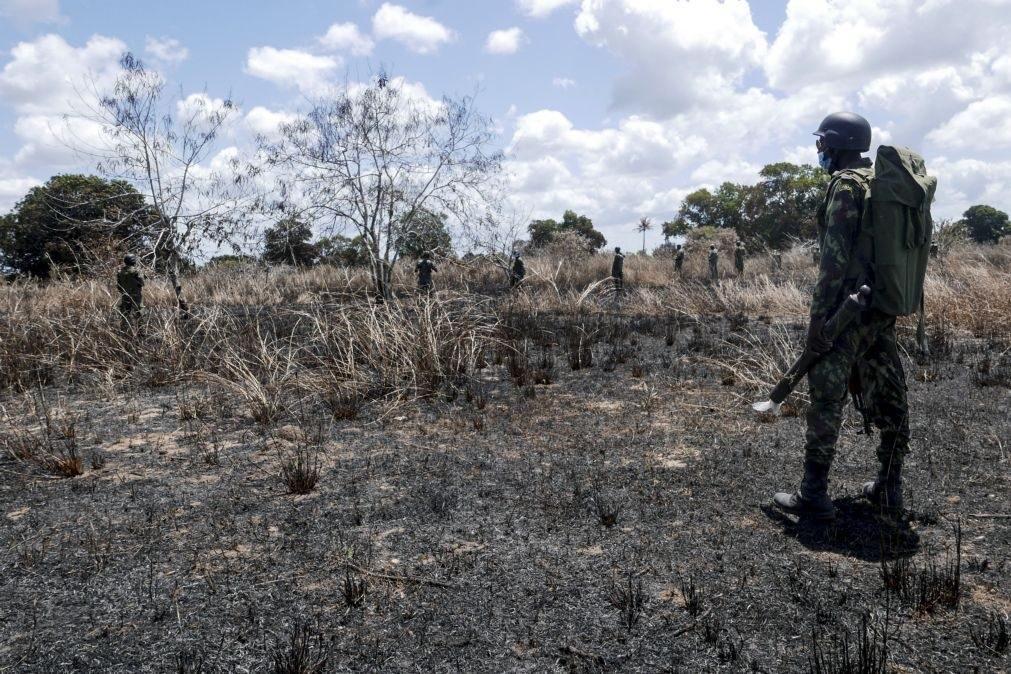Africa-Press – Mozambique. The president of the Episcopal Conference of Mozambique (CEM) believes that the terrorist attacks in Cabo Delgado do not have a military solution and that it is necessary to address the “deep-seated reasons” for the unrest.
Archbishop Inácio Saure told Lusa at the end of the 16th Meeting of Bishops of Lusophone Countries in Lisbon, that he does not believe there is a military solution to the problem, which, in his view, cannot be reduced to Islamic radicalism.
“I don’t really like to talk only about religious radicalism, because, for me, it’s necessary to clearly identify the root causes of this war, this suffering, and all these killings,” he stated, considering that treating the extremist attacks as a “religious problem” is “a bit reductionist”.
“I don’t believe in a military solution.” We absolutely need to think of another solution, because the military route will only kill, there are many people already dying, there are many decapitations, and the war never ends,” he said.
Therefore, in his view, “we need to attack the root causes of this war, attack the causes of this misery, all this malaise”, and so it is necessary to solve the economic and social problems the populations cannot endure.
When the European Union sends funds for weapons or when there is international support for soldiers, it is a way of “attacking the problem via its consequences”.
“But what are the causes? The causes must be clearly identified and the problem must be attacked at its roots,” he added.
“To find a definitive solution to this problem, it would be necessary to talk and help all parties involved among Mozambicans, between those waging war” and those who are victims, but, so far, “I see no real interest in that solution”, emphasized the Archbishop of Nampula, a province in the north of the country which has received thousands of internally displaced people from Cabo Delgado.
Popes have mentioned Cabo Delgado in their prayers, something that has been well received by Mozambicans.
This “is felt on the ground and it comforts us, because it means that the Catholic Church of Mozambique is not alone in the field, but is in communion with the universal Church, with the Pope,” Saure emphasized, also commenting on the possibility of beatification of the Italian nun Maria de Coppi, shot dead in September 2022 by alleged terrorists in an attack on the Chipene mission in Mozambique.
“I want to remember Sister Maria de Coppi, killed In Mozambique” – Pope
Due to the martyrdom Sister Maria de Copo suffered, her beatification has been requested by many faithful, something the Archbishop of Nampula would welcome.
“On the day of her funeral, I presided over the Eucharist,” he said. “I didn’t know her personally,” although reports from those close to her indicate that the nun “gave her entire life to Mozambique” and “it is said that, most likely, she knew her own murderers ” who killed her out of fear that she would denounce them.
The social crisis in the country is widespread, as exemplified by the demonstrations, violence and repression following the October 2024 elections, and this is a “general malaise that has not been resolved”.
Recently, “the so-called inclusive political dialogue was initiated, in which it is said that everyone will be heard”, but it is necessary that “this dialogue be truly inclusive and that no Mozambican, no social group, no party feels excluded” warned the leader of the Mozambican Catholic Church.
He gave the example of Venâncio Mondlane, the defeated presidential candidate whose supporters protested for weeks against the authorities, who must be included in this process: “The opposition leader, the second-highest vote-winner under the law, is a member of the Council of State. What does this mean? Does it mean that, from this point on, he will conform and then stop, let’s say, fighting for the truth?”
“I don’t know what this will lead to,” Inácio Saure responded to his own question.
The leader of the Mozambican church also lamented that dialogue with the state has still not been fully implemented.
For years, “we had a kind of open war against the church”, something that is no longer the case today, but the “context in which we live still leaves much to be desired”.
In the recent past, “an agreement in principle regarding relations between the Holy See and the Mozambican government was signed, but the implementation of this agreement is still a long way off,” the archbishop explained.
Cabo Delgado province has seen a resurgence of attacks by rebel groups since July, with the districts of Chiúre, Muidumbe, Quissanga, Ancuabe, Meluco and, most recently, Mocímboa da Praia being targeted.
Last Monday, Lusa also reported that at least six people were killed and farmland looted during an attack by suspected terrorists in the Muidumbe district on September 6.
The Mozambican government on Tuesday deplored the terrorist attacks recorded in recent days in Cabo Delgado, northern Mozambique, stating that it is the state’s role to pursue those responsible and stop the attacks so that the population suffers as little suffering as possible.
In the conclusions of the meeting of Portuguese-speaking bishops, those present expressed their “deep solidarity and support for the people of Cabo Delgado, who have been victims of barbaric acts of violence, destruction and death since 2017”.
“We once again urge the international community to contribute to a truly peaceful situation in Cabo Delgado,” the Portuguese-speaking bishops concluded.
For More News And Analysis About Mozambique Follow Africa-Press






